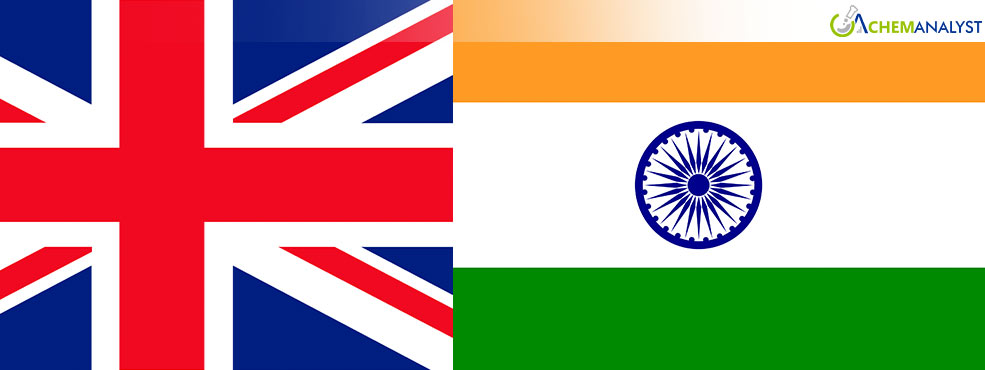Welcome To ChemAnalyst

The United Kingdom and India have officially concluded their long-awaited Free Trade Agreement (FTA). The announcement, made on May 6, has generated considerable excitement across the two nations.
After nearly three years of intricate negotiations that commenced in January 2022, the landmark pact promises trade advancements in goods and services, investment, mobility, intellectual property, and sustainability, with anticipated ripple effects across various sectors.
UK Prime Minister Keir Starmer lauded the agreement as a victory for the working class in both nations, projecting an increase in UK-India trade by a substantial £25.5 billion. The economic benefits for the UK are estimated to include an annual boost of £4.8 billion to its economy and a £2.2 billion rise in wages.
The FTA eliminates tariffs on an impressive 99% of Indian goods entering the UK market. This will immediately enhance the competitiveness of key Indian exports such as textiles, leather goods, marine products, toys, and auto parts. Furthermore, India has secured significant commitments from the UK in the services sector, aiding greater access in vital areas like IT, finance, education, and healthcare.
Economically, bilateral trade is projected to soar from £41 billion in the past fiscal year to an estimated £66 billion by 2040. UK exports like Scotch whisky, gin, and other spirits will witness substantial tariff reductions. The 150% tariff on Scotch whisky will be immediately halved to 75% and progressively reduced to 40% over the next decade. Similarly, import duties on cars entering India will decrease dramatically from 100% to a mere 10% under a quota system. In return, India will gain enhanced market access in the UK for a range of products, including textiles, food items, gems, jewellery, and pharmaceuticals.
Despite not being top-tier trade partners currently, the potential for growth between India and the UK is immense. Historically, India has diversified its defense imports, which were once predominantly from the UK. While the FTA has addressed long-standing challenges such as high tariffs on automobiles and alcohol, regulatory hurdles, differences in data privacy laws, agricultural market access, and concerns regarding labor and environmental standards, one notable omission is Britain’s Carbon Border Adjustment Mechanism (CBAM), which remains a point of concern.
The CBAM is set to launch in 2027. It will impose a levy on imports from countries that have lower or no carbon pricing, essentially targeting aluminium, cement, fertiliser, hydrogen, iron, and steel industries.
We use cookies to deliver the best possible experience on our website. To learn more, visit our Privacy Policy. By continuing to use this site or by closing this box, you consent to our use of cookies. More info.
